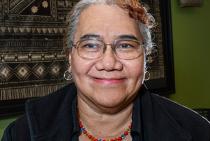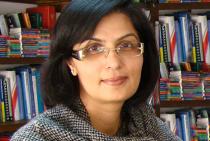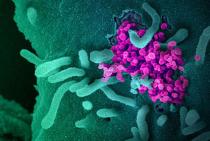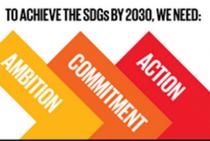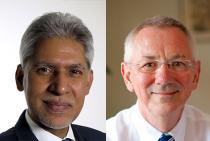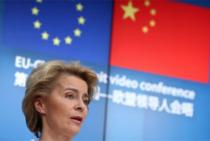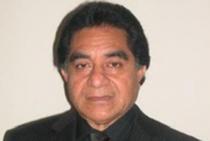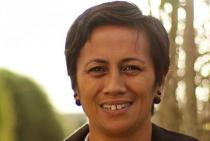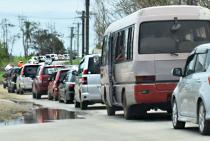In 1984, I had the privilege of meeting the Hon. Tasi Fakafanua at the Otago University in Dunedin. His memory has stayed with me for almost 40 years, as has my love for Tonga. I hope to visit one day before I am too old. Rev. Cameron Reeder.
You are here
Results for Opinion
Monday 28 September 2020
Nuku'alofa, Tonga
Stunning sand loss at Ha'atafu Beach on Tongatapu is revealed in two photos taken nearly 50 years apart.
Monday 28 September 2020
Nuku'alofa, Tonga
Yes, our isolation has been a distinct advantage, but keeping Tonga COVID-19 free, comes with much hard work at the borders to keep it that way. World Environmental Health Day reminds us of the importance of public health intervention in preventing people becoming ill with COVID-19. We are preparing for the novel coronavirus to reach our shores. No country is immune. By Sela Akolo Fa'u, Viliami Tongamana and Denise Tully.
Wednesday 16 September 2020
1 comment
New Delhi, India
The World Bank should no longer publish its Doing Business index, owing to its flawed design and vulnerability to manipulation. The Bank also owes the developing world an apology for all the harm this misleading and problematic tool has already caused. By Jayati Ghosh.
Wednesday 9 September 2020
Auckland, New Zealand
In many Tongan households in Aotearoa where the children have lost their Tongan reo, it is likely to be because the parents, despite their fluency in the reo, do not use it with their children at home. But Tongan is never irrelevant because it carries thoughts and feelings, knowledge and understanding, world-views and identities, dreams and aspirations – and what it means to be a Tongan human being. By Dr Melenaite Taumoefolau for Tongan Language Week 6 – 12 September 2020.
Thursday 3 September 2020
Zurich, Switzerland
Proponents of digital identification see the COVID-19 pandemic as a once-in-a-century opportunity, with a potential “jackpot market” of nearly eight billion people. In these dangerous times, using digital IDs to help control the spread of the virus and eventually to manage the distribution of a vaccine is often deemed appropriate and necessary. But there are ethical pitfalls. Rather than submitting people to a data-driven and AI-directed system that relies on surveillance and control through digital IDs, we should create more decentralized participatory frameworks. Collaborative approaches, based on the power of civil society, form the backbone of a strategy that uses our social talent to achieve humanity’s collective goals. By Dirk Helbing and Peter Seele.
Friday 28 August 2020
Abuja, Nigeria
Growing evidence shows that COVID-19 survivors can suffer from long-term health effects, not least heart-related complications. All countries with high rates of obesity should be considering programs encouraging weight loss, healthier eating, and physical activity. The more we can reduce the heart-related and other complications of COVID-19, the more lives we will save. By Ifeanyi M. Nsofor.
Wednesday 19 August 2020
Islamabad, Pakistan
By combining phones, Internet connectivity, and national IDs, a digital, demand-based social-protection system can be created to enable those in distress to seek support during crises. And it demonstrates how cash transfer programs can be deployed to counter the adverse socioeconomic consequences of external shocks, such as COVID-19. For Pakistan, this was a watershed moment in terms of government functioning. The crisis compelled the government to be more responsive, data-driven, experimental, and ambitious. At the same time in order for democracies to ensure progress, a culture of integrity and openness must be ingrained in government institutions and processes. By Sania Nishtar
Monday 10 August 2020
1 comment
London, United Kingdom
This week's dialogue on economic strategies by the Forum Economic Ministers' Meeting, 11-12 August, is critical to building back better, or differently, for the Pacific Forum Islands. By Amelia Kinahoi Siamomua. (Tonga’s candidate for the post of Secretary General of the Pacific Islands Forum Secretariat).
Monday 10 August 2020
Melbourne, Australia
Many ethicists conclude that fully informed volunteers should be allowed to sign up for a potentially dangerous trial that will reduce the time required to bring an effective vaccine to everyone who could be exposed to SARS-CoV-2. The alternative is that the virus will continue to impose much higher levels of risk on other people, especially health care workers, older people, and people with underlying health conditions that reduce their chances of surviving infection. We should praise the young and healthy volunteers for risking their safety in order to save others. By Peter Singer and Isaac Martinez
Tuesday 28 July 2020
New York, USA
While ample resources – and high hopes – are being invested in the race to develop a COVID-19 vaccine, policymakers and the public should be preparing for a scenario in which no silver bullet is possible. But even in that case, writes renowned infectious disease expert William A. Haseltine, there are strong grounds to believe that we can control the virus and its spread.
Wednesday 22 July 2020
Geneva, Switzerland
During the 2009 swine flu pandemic, a few countries cornered the vaccine market, leaving the vast majority of the global population with no vaccine at all until the outbreak was effectively over. This scenario must be avoided at all costs during the current crisis – and, thanks to the COVID-19 Vaccine Global Access Facility, it can be. By Seth Berkley, Richard Hatchett, and Soumya Swaminathan.
Monday 20 July 2020
New York, USA
Even if one or more vaccines emerge that promise to make people less susceptible to COVID-19, the public-health problem will not be eliminated. But policymakers can avert some foreseeable problems by starting to address key questions about financing and distribution now. The toughest political question of all, though, is likely to concern access. Who should receive the initial doses of any vaccine? Who determines who is allowed into the queue and in what order? By Richard N. Haass
Tuesday 7 July 2020
New York, USA
The global crisis resulting from the spread of COVID-19, has had a major effect on sustainable development targets and urgent action is needed on COVID-19 recovery. ESCAP will highlight Asia-Pacific priorities at United Nations’ High-Level Political Forum which opens today, 7 July.
Tuesday 7 July 2020
Geneva, Switzerland
The world has been planning for the future in the mistaken belief that it will resemble the past. But as COVID-19 coincides with cyclones in South Asia and the Pacific and vast locust swarms in East Africa, the need to prepare for a world of unexpected shocks has become clearer than ever. Epidemics, floods, storms, droughts, and wildfires are all expected to become more frequent and severe, affecting hundreds of millions of people each year. By Jagan Chapagain and Andrew Steer
Thursday 2 July 2020
Brussels, Belgium
On 22 June, the first summit took place between the new EU leadership team, headed by European Commission President Ursula von der Leyen and President of the European Council Charles Michel, and China’s President Xi Jinping and Premier Li Keqiang, but there was little time for small talk. One official remarked, ‘the gloves were off from the start’ with no attempt to secure a traditional joint statement, let alone a joint press conference. The EU side accepted that EU–China relations ‘were crucial in many areas’ but at the same time stated that ‘we have to recognise that we do not share the same values, political systems, or approach to multilateralism’. The Chinese side appeared surprised at these blunt words but they stemmed from the March 2019 EU policy document which stated that China was a ‘systemic rival’ in certain areas. By Fraser Cameron. East Asia Forum.
Wednesday 1 July 2020
Sydney, Australia
Ko e taha e fehu‘i tefito hotau fonua he ‘aho ni ko e fatongia ‘o e Hou‘eiki mo e Nopele ki he Fa‘unga Pule ‘o e ‘aho ni. Pea ko e hoha‘a ‘oku ma‘alifekina pe kohai ‘oku nau fakafofonga‘i ‘i Fale Alea. Pea he ‘ikai teu toe lave ki he faikehekehe ‘o Nopele mo e Hou‘eiki Tauhi Fonua he ko e kupu si‘i mo e lahi ‘o e me‘a tatau.. ‘Inoke Fotu Hu‘akau.
Friday 19 June 2020
1 comment
Suva, Fiji
The COVID19 pandemic has upended economies the world over, while there is financial pain there is also an opportunity for the reorganisation of national and global economics. Fiji's economic fault lines have been exposed under the pressures of COVID-19, exposing the gaps through which people and communities are falling. As governments continue to act to support economies undone by the pandemic it's important to see that any community relief that is being offered also has an eye to the future. By Maureen Penjueli.
Thursday 18 June 2020
Bangkok, Thailand
CoViD-19’s effects on health, jobs and economies are simply an acute version of what climate change is predicted to bring – and in places already has. Unless we aspire to a better normal with recovery, we are treating the symptom, not the disease. We must build back better than before. For example, it may be tempting to scale up funds for infrastructure like roads, but that funding can go to improved and greener public transport systems to service more people. More public transit capacity will reduce the load on roads and reduce air pollution and emissions. Investment in IT can decentralize business operations, reducing time lost and carbon produced in commutes and travel. By Armida Alisjahbana and Inger Andersen.
Wednesday 17 June 2020
Sydney, Australia
Kau fakatalanoa mu’a ki he uho ‘o e palopalema ‘oku tau fehangahangai moia ‘i he lolotonga, pea ‘oku ‘i ai ‘eku tui te tau hokohoko atu ki he kaha’u pea toe kovi ange.- 'Inoke Fotu Huakau.






